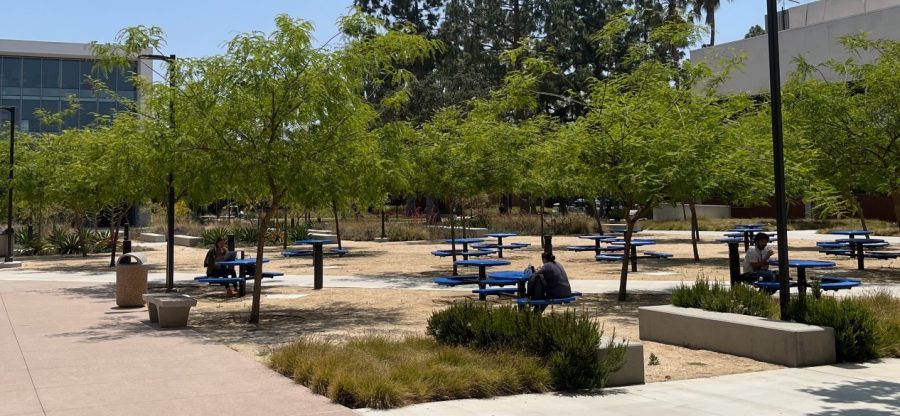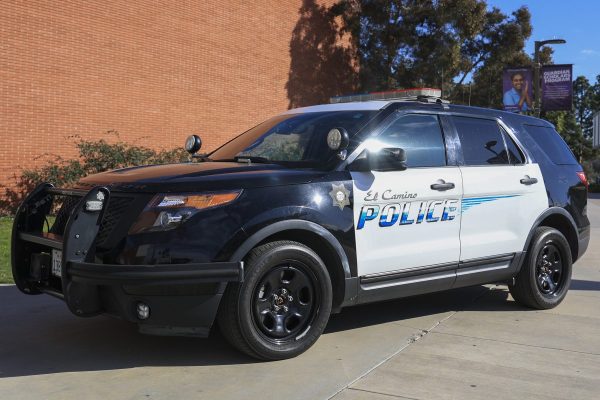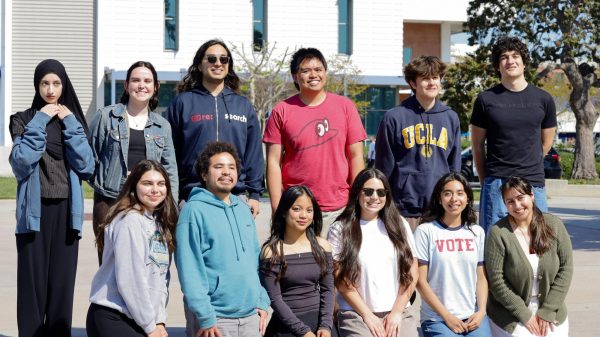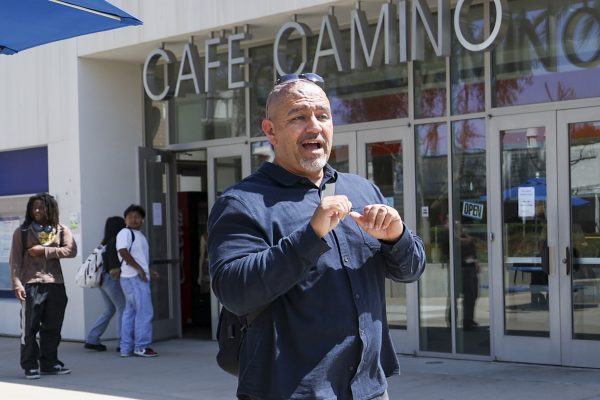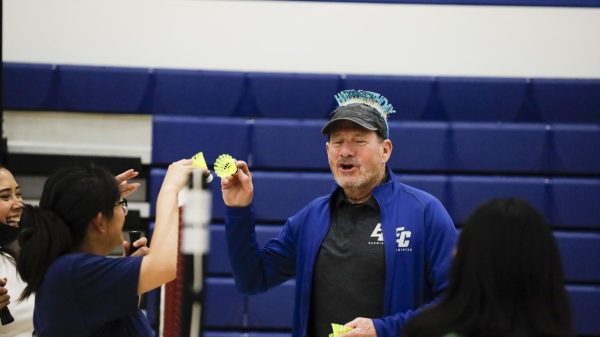Online classes are here to stay at El Camino
El Camino College is planning a 50-50 enrollment split this fall semester.
Students, administrators and faculty have actively debated as to how best to go forward regarding in-person and online learning.
Proponents of virtual, hybrid and physical learning each have valid points as to why their modality is most beneficial, but amidst the confusion and discussion, the reality is that online learning is here to stay at El Camino for the foreseeable future.
At the beginning of the spring 2022 semester, many in-person classes were cut or converted online due to in-person enrollment missing expectations, surprising many faculty and administration.
Vice President of Academic Affairs Jacquelyn Sims said that the school projected an enrollment split of 75% in-person and hybrid and 25% online this spring.
Quickly after student enrollment began, El Camino discovered that students preferred online class more than anticipated.
Thus El Camino’s administration pivoted, and Sims said the college decided to offer an even split of 50% online and 50% in-person courses this spring and fall semester to ensure students are enrolling in classes and engaging in academic content.
Yun Chu, a psychology professor at El Camino since 2014, believes these enrollment trends are here to stay.
“I think the pre-covid modes of class delivery and in-person enrollment will not go back to pre-covid numbers because it’s a ‘new generation’ of students… These students are comfortable and used to online learning,” Chu said.
Online classes are popular with students because they add freedom to their schedules since many students have jobs, are parents and have significant responsibilities. Students have the option of attending synchronous Zoom meetings throughout the week or work completely asynchronously at their own pace.
“There is so much more flexibility and equity with online learning,” Chu said.
However, many professors and students are concerned with student learning in the online modality, as it’s easy for the students to get distracted, cheat and simply not learn. Many believe it is far more difficult to achieve an academic community and collaboration virtually than in-person.
Evelyn Uyemura, an ESL, English 1A professor and faculty member since 1985, thinks that online discussions and interactions are nothing like they were when students used to physically discuss the novel they were reading.
“I can ask students to share a thought on a discussion board but in terms of interaction between students and discussions, I have not been able to make them happen online anywhere close to how they would be in person,” Uyemura said. “There’s definitely advantages to online: It’s easier for me and the students. But is it as much learning? I don’t think it is for me and the student.”
These concerns among faculty aren’t limited to humanities and discussion-based courses. Lars Kjeseth, a math professor at El Camino since 2000, feels that teaching and learning online is harder than in-person for those studying “STEM subjects.”
“I feel as a math instructor it was very, very much harder when I was purely online to sort of see what my students were thinking and evaluate their work,” Kjeseth said.
Dr. Kjeseth is eager to teach in-person classes this fall and interact with his students.
“I really miss going to the [white]board,” Kjeseth said. “As a math professor, I can say the idea of creating a space where the students are in community with each other and learning from each other is far harder to achieve online.”
When speaking to both Sims and Chu, it was revealed that online enrollment has increased much more in humanities, social sciences and general education courses compared to the STEM courses.
This sentiment is held by some students like Nina Saadeh, a 24 year old currently completing her second bachelor’s degree in kinesiology.
“I think online should be kept for classes like sociology and English but for other things like chemistry, bio, math and classes that require hands-on help and more assistance should stay in-person. I don’t think it’s worth my time to come to campus for sociology since it’s not my major and doesn’t require lab work,” Saadeh said.
When asked about the concern of decreased learning and student success in an online learning environment, Sims explained that there is comprehensive training for professors to ensure a high quality virtual education.
“When we had to shelter in place and we went remote, for many of us, we never had any training at all. What does it look like to teach a class online? How do you engage students online? How do you make sure they are participating and not cheating?” Sims asked. “But thankfully, we have a great Online and Digital Education training session and now all faculty who desire to teach online must go through our training on how to teach online.”
As a former dean of mathematical sciences, Sims half-jokingly added that “students, should also have a little more training in terms of discipline to be a good online student.” But in terms of the college online, it is actively researching student success and learning across different modalities.
“We deeply care about student success. Fall semester we’re starting 50-50 and the research and trends will help us go in whichever direction,” Sims said.
Editors Note: Featured Photo added on May 30, 2022 at 10:11 a.m.


